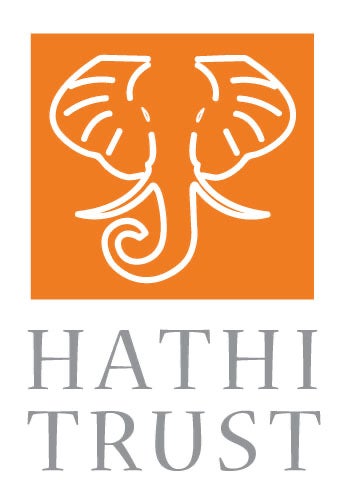Editor:
Brandon Sweet
University Communications
bulletin@uwaterloo.ca
Supporting international students abroad to enter Canada

As our students face a unique fall term, the Student Success Office launched a new COVID-19 Travel and Quarantine Checklist for students who plan to enter or return to Canada from an international destination. The goal of the checklist is to help students prepare to travel internationally and meet their mandatory 14-day quarantine (self-isolation) requirements.
Highlights of the checklist include:
- A guide for students to develop their quarantine plan, including a template to make it as simple as possible
- Transportation options they can book to travel to their place of quarantine
- Accommodation suggestions, including on-campus accommodations at St Paul’s University College
- Resources for maintaining overall wellbeing, including pointing out health supports if they become ill
- Social and community resources, including virtual ways to connect with other students through the International Peer Community (IPC)
What about travel restrictions?
Although travel restrictions are in place until at least August 31 for most travellers, some international students may be able to come/return to Canada if they prove that they’re entering for essential (non-optional and non-discretionary) purposes and meet one of these exemptions:
- They have a valid study permit
- They have been approved for a study permit outside of Canada on or before March 18, 2020
- They have been approved for a study permit and are coming from the United States
For more information on quarantine supports and policy, as well as additional international student resources, reach out to the International Student Experience team and the Immigration Consultants in the Student Success Office. You can also stay updated by visiting the COVID-19 FAQ pages for new students and current students.
Access 830,000 library items through new HathiTrust service
A message from the Library.
 The University of Waterloo is now a member of the HathiTrust, an international community of research libraries with more than 150 members, chiefly in the U.S. and Canada, which, collectively, has preserved more than 17 million digitized print items.
The University of Waterloo is now a member of the HathiTrust, an international community of research libraries with more than 150 members, chiefly in the U.S. and Canada, which, collectively, has preserved more than 17 million digitized print items.
In response to library closures due to COVID-19, HathiTrust has made over 830,000 book and journal volumes from the University of Waterloo's print collection available online for our students, faculty and staff. Under this new program any print book held in the Library's collection that is also contained in the HathiTrust Digital Library can be accessed by faculty, staff and students for full-text, online reading.
"I am delighted to share with the University of Waterloo community the news that the Library has joined hundreds of libraries world-wide in shaping the future of the HathiTrust Digital Library," says University Librarian Beth Namachchivaya. "Through the HathiTrust Emergency Temporary Access Service, the Library can effectively provide digital access to hundreds of thousands of print materials from our collections that are not accessible to our user community during the COVID-19 pandemic."
In addition to the digitized books held by HathiTrust in Waterloo's print collection, all library users have access to more than 4.4 million public domain and Creative Commons-licensed works in HathiTrust.
Access to in-copyright materials is temporary. This access is provided through HathiTrust's Emergency Temporary Access Service (ETAS), a service that is only available while the Library's print collection is not available for circulation or consultation due to the current COVID-19 situation.
As per the terms of agreement with HathiTrust, items available online through ETAS are not eligible for the Library's print pick-up service.
Waterloo students, faculty and staff can login to the HathiTrust website by:
- Clicking the yellow login button
- Finding and selecting "University of Waterloo" in the list of partner institutions
- Logging in with your Waterloo userid and password
Records for HathiTrust items will also be available soon via the library catalogue.
Please note that:
- Users will have 60 minutes of access to the item on the HathiTrust website during any session. Items will automatically be renewed if you remain active on the item and no other user has requested it. As a courtesy to others, please check the item back in when not in use.
- Access to in-copyright materials will be suspended once access to Waterloo's print collections is reinstated.
- Use of materials through the HathiTrust ETAS service is governed by the ETAS terms of use.
- The number of copies available for each book coincides with the number of print copies Waterloo owns. If all copies are in use, users can request it but must wait until one is released.
- This service is intended for individual research use and cannot accommodate group use.
Can't find what you’re looking for? We may be able to provide access through other means. Ask us.
Waterloo Library's partnership with HathiTrust
This arrangement has been made possible via University of Waterloo Library’s membership in HathiTrust — a non-profit partnership of academic and research institutions that preserves digitized books, journals and other print materials, and makes them as accessible as possible.
By offering this service HathiTrust is helping us to continue to support teaching and research while we are physically distancing to protect the health of our community.
Q and A with the experts: the efficacy of tracing apps
The University of Waterloo has a number of experts available for comment on various aspects of the COVID-19 pandemic.

Tracing apps are here, many people have them on their phones already, and governments are endorsing them in every part of Canada – but do they work?
We spoke with Professor Urs Hengartner, an expert in smartphones and mobile applications’ privacy challenges, about the new mobile app that will be used to help with tracing COVID-19 across Canada.
How do tracing apps work?
Contact tracing apps (also called exposure notification apps) make a smartphone broadcast a unique, periodically changing signal over Bluetooth. Nearby smartphones receive this signal and remember it for a period of time. If a person tests positive for COVID-19, the person uses their app to notify a central server. All smartphones periodically contact this server to learn of new notifications. If any of the Bluetooth signals recorded earlier by a phone is among these notifications, the phone has been close to an infected person, and the app alerts the user of the exposure.
What happens after you are notified that you’ve come into contact with someone with COVID? Where does public health come into play?
The app can recommend certain actions to the alerted user, such as taking a test for COVID-19 or going into quarantine. In the outlined approach, public health by design gains no information about a detected exposure. The app may give the alerted user the option to notify public health of the exposure.
Are tracing apps effective in curbing the spread of COVID-19?
Nobody currently knows. Exposure notification apps suffer from false positives (a person gets alerted of exposure even though the person did not get infected) and false negatives (a person gets infected but does not get alerted). Of course, other controls against COVID-19, like testing for the virus or wearing a face mask, have similar weaknesses. Therefore, it is important not to have a single control, but a combination of them, and design exposure notification apps in a privacy-preserving way.
Do tracing apps jeopardize data privacy? Should people be worried about the security of their personal information?
The outlined design, followed by Canada’s recently announced exposure notification app, is privacy-preserving. There is no central party, like public health, that can learn of people’s locations and contacts. Therefore, Canadians using the app should not be worried about the privacy of their personal information. To give Canadians the option to convince themselves that the app is free of security vulnerabilities, the app’s source code has been made public.
Apart from effectiveness concerns, have other concerns been raised about tracing apps?
Such an app should get accompanied by a legal framework that prevents businesses from discriminating against people who cannot use the app to demonstrate non-exposure, maybe because they do not have a smartphone to start. In addition, the legal framework should ensure that people do not have to worry about losing their salary when being asked by their app to go into quarantine.
Urs Hengartner is an Associate Professor in the David R. Cheriton School of Computer Science. His research areas include information privacy and computer and networks security with a focus on security and privacy challenges that arise in the context of smartphones and mobile applications. He is a member of the the Cryptography, Security, and Privacy (CrySP) research group, the Centre for Applied Cryptographic Research and the Systems and Networking Group.
Friday's notes
The Student Life Centre's hours will be changing on Monday, August 10. The building will be open weekdays from 7:30 a.m. to 7:00 p.m. and will be closed Saturdays, Sundays and holidays. All study and lounge space remains closed for the time being. Only the Ring Road entrance is open at this time.
Additionally, International News will be open from 7:30 a.m. to 6:00 p.m. starting on Monday.

Ain't no party like a Perseid Party because a Perseid Party can be held with physical distancing. The Gustav Bakos Observatory is inviting members of the University community to join them online as they show you around the night sky during the Perseid meteor shower that will happen on August 11. "While the Observatory remains closed due to the pandemic, we are happy to offer a live online program during the peak night of the annual Perseid Meteor shower," says a note from the observatory. "We will begin the evening by learning how to use a special map of skies called a planisphere. Afterwards, we will identify some stars, constellations, and planets in the sky, while we wait for the meteors!"
The livestream event will take place from 8:30 p.m. to 9:30 p.m. The observatory is giving virtual attendees the option of printing and making your own planisphere beforehand.
In the event of bad weather, the event will be postponed to August 12. For more information visit the Physics and Astronomy website.
No Beyond the Bulletin Podcast this week - check out our archives

The Beyond the Bulletin Podcast is on hiatus this week, but we'll be back next Friday with a new episode. In the meantime, check out our back catalogue of 54 episodes for campus content and interesting interviews you might have missed.
Link of the day
Tomorrow is International Cat Day, but isn't every day International Cat Day?
When and Where to get support
Students can visit the Student Success Office online for supports including academic development, international student resources, leadership development, exchange and study abroad, and opportunities to get involved.
Instructors can visit the Keep Learning website to get support on adapting their teaching and learning plans for an online environment. The following workshops are current offerings from the KL team (CTE, CEL, ITMS, LIB):
Getting Ready to Facilitate Online Courses: TA Training, beginning July 13.
Remote Course Design Essentials, Wednesday August 5, 8:30 a.m. to Tuesday, August 11, 4:30 p.m.
Assessment Design Café, Thursday, August 13, 1:30 p.m.
Employees can access resources to help them work remotely, including managing University records and privacy of personal information
Interested in learning more about engaging your students in an online course? The Centre for Extended Learning has created a new resource for you called "Fostering Engagement: Facilitating Online Courses in Higher Education"
ThisOpen Educational Resource was designed for post-secondary instructors and teaching assistants who would like to better understand the critical role of facilitation in online course delivery, and build practical skills and strategies that are relevant, effective, and authentic.
Here are some tips for staying healthy while working from home.
The Writing and Communication Centre has gone virtual. We have many online services to help you meet your goals, including: Virtual Pre-booked and Drop-in appointments, Online workshops, Virtual Grad and Faculty Writing Cafés, Instagram Live Q&A sessions, Live PJ-Friendly Write-ins, Online learning resources, and Online programming for Master’s and PhD students. Whatever you’re working on, we’re here to help! Visit our website for more information.
We understand that these circumstances can be troubling, and you may need to speak with someone for emotional support. Good2Talk is a post-secondary student helpline based in Ontario, Canada that is available to all students.
If you feel overwhelmed or anxious and need to talk to somebody, please contact the University’s Campus Wellness services, either Health Services or Counselling Services. You can also contact the University's Centre for Mental Health Research and Treatment.
The Library has published a resource guide on how to avoid information overload.
The Faculty Association of the University of Waterloo (FAUW) continues to advocate for its members. Check out the FAUW blog for more information.
The University of Waterloo Staff Association (UWSA) continues to advocate for its members. Check out the UWSA blog for more information.
WUSA supports for students:
Food Support Service food hampers are currently available from the Turnkey Desk on weekdays from 9:00 a.m. to 4:00 p.m. in the Student Life Centre. If you have any questions please email us at foodsupport@wusa.ca.
MATES – Providing general online Peer Support via Skype to undergraduate students. To set up an appointment, please go to: https://wusa.ca/peersupport
Glow Centre - Providing online Peer Support for the LGBTQ2+ community via Skype to Undergraduate students. To set up an appointment, please go to: https://wusa.ca/peersupport
The Women’s Centre– Providing online Peer Support via Skype to undergraduate students. To set up an appointment, please go to: https://wusa.ca/peersupport
RAISE– Providing online Peer Support via Google to undergraduate students. To set up an appointment, please go to: https://wusa.ca/peersupport
The Bike Centre – Now open by appointment for your bicycle repair and rental needs in the Student Life Centre. For more information or to schedule an appointment, please go to: https://wusa.ca/bikecentre
Centre for Academic Policy Support - CAPS is here to assist Waterloo undergraduates throughout their experience in navigating academic policy in the instances of filing petitions, grievances and appeals. Please contact them at caps@wusa.ca. More information at http://wusa.ca/caps
WUSA Commissioners who can help in a variety of areas that students may be experiencing during this time:
- Equity – equity@wusa.ca
- Co-op and Experiential Affairs – coop.affairs@wusa.ca
WUSA Student Legal Protection Program- Seeking legal counsel can be intimidating, especially if it’s your first time facing a legal issue. The legal assistance helpline provides quick access to legal advice in any area of law, including criminal. Just call 1-833-202-4571.
Empower Me is a confidential mental health and wellness service that connects students with qualified counsellors 24/7. They can be reached at 1-844-741-6389.
When and Where (but mostly when)
Healthy Warriors at Home. Free programming including Online Fitness, Personal Training, Health Webinars, Personalized Nutrition and more. Open to students, staff, faculty and alumni. Register today.
Waterloo Warriors Online Hockey Skills Camps. Designed to provide a fun, inclusive and safe atmosphere where youth can take part in skill development and team building. Age 7-9 and 10-12. Only $50/week and includes 5 x 1 hour sessions. Register today.
Warriors Basketball Web Workouts. Register today to gain access to online content that is guaranteed to help you improve your basketball skills; regardless of your current skill level. Open to all ages. New content added weekly throughout the year for only $100. Register today.
Warriors Big 6 Summer Challenge. Weekly challenges from July 13 to August 23 focusing on Movement, Sleep, Hydration, Nutrition, Apps and Choose your own adventure. Post your photo and tag @WlooRec on Instagram for a chance to win a $100 box from truLOCAL each week as well as $100 from Mel’s Diner for our grand prize winner. Stay healthy Warriors!
Q&A with the Science Innovation Hub Advisory Team, Wednesday, August 5, 10:00 a.m.
New Faculty Online Social, Tuesday, August 11, 11:00 a.m.
Science Innovation Hub Skills Development Workshop: Scientific Project Planning, Wednesday, August 12, 3:00 p.m.
NEW - Engineering Our Way Through a Pandemic: How Waterloo Engineers are Finding Solutions, Thursday, August 13, 1:00 p.m. Part of the Engineering Alumni Speaker Series, this virtual event is open to everyone. A Zoom link will be sent to registrants.
CBB-[CREATE Series]- Engagement with the FDA on Premarket Submissions and Inspections by Yuan Fang], Friday, August 14, 2:00 p.m. to 3:00 p.m. Online via Webex.
NEW - QPR Mental Health Training for Students, Monday, August 17, 1:30 p.m., Microsoft Teams – Register on GoSignMeUp.
NEW - A conversation about Indigenizing annual performance reviews, Wednesday, August 19, 1:00 p.m. Register for access.
PhD oral defences
Statistics and Actuarial Science. Takaaki Koike, "Risk Analysis: Measure of concordance, their compatibility and capital allocation." Supervisor, Marius Hofert. Wednesday, August 12, 9:00 a.m.
Computer Science. Mike Schaekermann, "Human-AI Interaction in the Presence of Ambiguity: From Deliberation-based Labeling to Ambiguity-aware AI." Supervisor, Edith Law, Kate Larson. Thesis available from MGO - mgo@uwaterloo.ca. Oral defence Wednesday, August 12, 10:00 a.m.
Applied Mathematics. Giselle Sosa Jones, "Space-time hybridizable discontinuous Galerkin methods for free-surface wave problems." Supervisor, Sander Rhebergen. Thesis available from MGO - mgo@uwaterloo.ca. Oral defence Monday, August 17, 8:00 a.m.
Psychology. Navio Kwok, "A Longitudinal Investigation of Leader Development and Leadership Emergence." Supervisor, Doug Brown. Available upon request from the Faculty of Arts Administrative Coordinator, Graduate and Research. Oral defence Monday, August 17, 12:00 p.m.